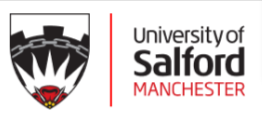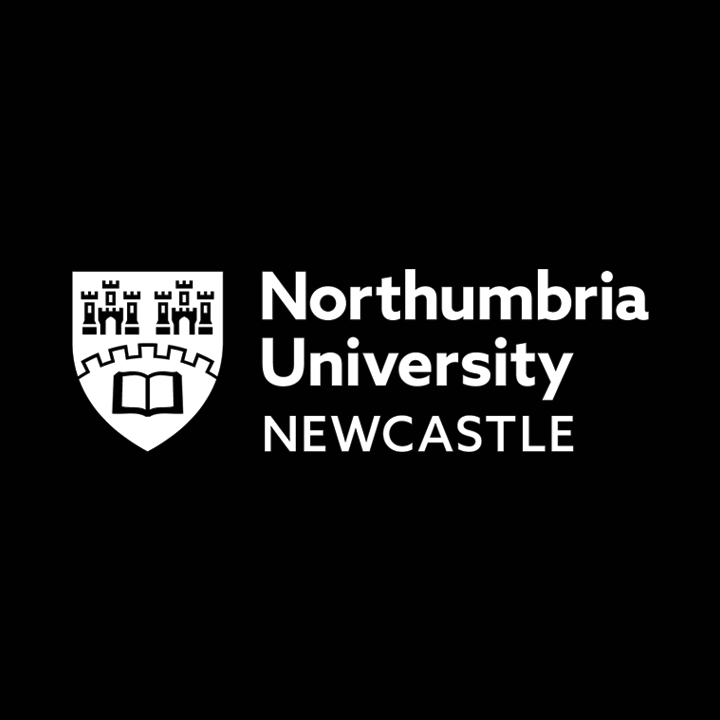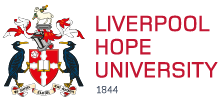Throughout this games design degree, you will study gaming in a range of contexts, from the fundamentals of games design, art and programming to digital art, creative and immersive technologies. As you move into the second and third years of your degree, you will be able to focus on the area of specialism that interests you, choosing from optional modules taught by leading experts in the field.
You will become experienced in group working through agile methods, you will learn about narrative and storytelling, human computer interaction and user experience, developing a broad understanding of historical and emergent technology. You will investigate developing trends while building knowledge and understanding the broader digital creative industries.
The optional placement module and intensive team-based learning environment will give you the chance to apply your skills in a real-world setting. You will gain an understanding of organisational structure, internal processes and how development teams work, so you will graduate with a clear focus on your next step into industry. Indeed, the USP of this degree is the years of experience we have in formulating multidisciplinary teams to build real world product, within a professional working structure and environment.
Video game development has become one of the fastest growing sectors in the world. AAA, Indie, Advergaming, Hyper-Casual and Serious Games offer a broad landscape for excellent employment opportunities. With this continued expansion, there has never been a better time to get involved in video game production.
Keen to kick-start your career in the games industry? Looking for a degree that will help you develop the skills and experience you need? Are you looking for a course that will allow you to build functional games? Whether you are an aspiring programmer, designer or artist, our specialised games design and production course with optional placement year, will give you the chance to experience the world of professional games design and put your newly developed skills to the test. This kind of experience is invaluable to future employers and will give you the competitive edge within the job market.
You will:
- Learn how to think both creatively and technically as a game designer and producer
- Gain fundamental and advanced knowledge in creative computer programming
- Gain fundamental and advanced knowledge in digital graphics and art
- Develop specialist skills in planning, prototyping, and producing computer games
- Work in multidisciplinary teams to produce functional polished product
This is for you if:
- You want to build functional games in multidisciplinary teams in a real world production environment.
- You want to understand the broad landscape of game production while specialising in your own are of interest.
- You want to learn about emergent interactive technology and the wider digital creative industries.
- You want to engage in a program that aims to prepare students to gain meaningful employment in the digital creative industries.
The course has one clear and focused objective, to prepare students to gain employment in the digital creative industries. This games design course also allows you to dive into both the artistic and creative side of games production as well as the fundamentals of programming.
As your studies progress, optional modules will allow you to specialise in an area of games development, whether that’s advanced 3D modelling or getting to grips with hardcore programming challenges. You will explore games design theory, game play mechanic, narrative and world building, you will consider human computer interaction, user experience, and interface design, while considering usability testing and quality assurance. Everything you learn will feed into the continued production of tangible product in a real-world team-based learning environment.
In the final year you will define your own working groups to produce a game prototype to an industry standard, you decide who to work with, and as a team you define the genre, the theme and scope of the product you choose to develop. Alongside the production of your game, great emphasis is placed on defining a pathway into employment, a purposely developed module will help you develop your own professional identity and core competencies. A further practice-based dissertation module will help to develop a genuine area of expertise, putting you ahead of the competition.
Want to find out more? Take a look at our course breakdown to see what will be covered in each module.
Year one
Game Design Fundamentals
- Within this module you will learn the fundamentals of games design, you will study the theory of play, rules and mechanic. You will investigate design methods and process, you will conceptualise and build board game prototypes, before testing and polishing towards a professional product. This module is rich and fast paced and lays the foundations for the design pathway across the next three years.
Visual Arts
- Within this module you will follow a Bauhaus model engaging with a number of creative processes and practices. You will be encouraged to develop your independent creative capabilities, you will learn about portraiture and life drawing, product and vehicle design, and get hands on in the workshop building physical pieces. Throughout this module you will develop design skills, building confidence to communicate your ideas. Even if you are a programmer and have little prior artistic capability it does not matter, at this stage it is about the experience, learning more about the creative process and its application.
Entertainment Technologies
- Entertainment Technologies has two strands, firstly the study of technologies from the past, the present, and in the future. The module aims to equip you with the foundation knowledge required by a creative digital practitioner, not only in the game's domain, but across the broader digital industries. Within the second part of this module, you will conceptualise and build interactive prototypes in our maker space, using technologies such as Raspberry Pi, Arduino and rudimentary Processing to realise your ideas.
Principles of Digital Game Design
- Within this module you will work in production teams to build your first 2D digital game. You will engage with industry methods within an agile framework, to conceptualise, design, prototype and test your ideas. We aim to build functional product and the outputs at this stage are expected to reach a high standard. Groups will consist of individuals taking on distinct roles, as we drive with a strong professional work ethic to achieve our goals.
Digital Graphics
- This module is in essence a continuation of the visual arts module in the first semester, in that it engages the same design methods and traditional arts practices, only this time the final outputs will be digital. The module covers photographic theory, composition, digital image theory, image retouching, pixel and vector art, digital painting, graphical layout and an introduction to 3D modelling. The module is rich and fast paced, and the outputs are varied. Again, if you are a programmer at heart this module offers a supportive opportunity to understand more about digital arts methods, processes, and pipelines.
Introduction to Programming
- Within this module you will receive a solid introduction to the foundations of computer programming, you will study code structures and principles, you will prototype, test and bug fix. You will investigate flexible configurable systems and receive an introduction to games engines. If you have any kind of phobia towards computer science relax, this is about experience, understanding, risk taking and having fun. You will receive all the support you need to progress. If you are already familiar with programming, we have the expertise to help you develop to the next level at a more accelerated pace.
Year two
Game Development Foundations
- Within this module you will work in production teams to build your first 3D digital game, the module will build upon, and further develop the production pipelines and tools introduced in the first year, but now the process is becoming progressively more complex. Topics covered will include, first person and animation controllers, game sketching, visualising gameplay, state machines, flow diagrams, space-based design, advanced user interfaces, conversation systems, and play testing techniques. The module is demanding yet rewarding, and at this stage you can expect to see significate progression.
Human Data Interaction
- This module covers the theoretical principles of Human Computer and Data interaction. Examples of its manifestation will be explored across both serious and entertainment applications. Learning will focus not only at the point of interaction between human and computer, but also the underlying systems and data that drive interactive experiences. Students will explore the origins and generation of data, ethics and security, and the power of analytics and statistics which increase the value and utility of data sets. Learning will look at how humans interact with data through digital interface and the importance of pattern and human factors. Students will go on to explore information design, communication and interface paradigms before moving on to consider both interface and system design, prototyping and testing.
Advanced Gameplay Development
- This module will echo the group-based production modules already undertaken, and will utilise the same processes and pipelines, it will though, step up a level in complexity and edge closer to a commercial standard, the visual elements will be more organic and detailed, the gameplay will be richer, and the systems will become more dynamic. The themes typically covered within this module will include: third person controllers, aesthetic and technical aspects, controlling game agent’s animations, interacting with agents, combat mechanics, interacting with conversational systems, game cinematic components, constructing open landscapes, advanced game mechanics, advanced level design techniques, game analytics and telemetrics.
You will also choose one of the following two optional modules
Digital Environment Art
- Within this elective module you will be introduced to the processes and skills required to design, develop and deploy 3D virtual games environments. You will learn how to employ traditional design processes to conceive and plan for the construction of modular components that can be transposed into game engine technologies. The module will focus on the construction of well crafted, low detail, optimised 3D topology, it will develop fundamental 3D modelling and texturing skills. Emphasis will be put on the quality of the product, employing industry standards and production pipelines. Rather than being a technical training module, you will be expected to demonstrate a capability to engage technical tools alongside traditional creative process. Everything in this module feeds back directly into your group-based game production.
Games Engine Programming
- This module will echo the group-based production modules already undertaken, and will utilise the same processes and pipelines, it will though, step up a level in complexity and edge closer to a commercial standard, the visual elements will be more organic and detailed, the gameplay will be richer, and the systems will become more dynamic. The themes typically covered within this module will include: third person controllers, aesthetic and technical aspects, controlling game agent’s animations, interacting with agents, combat mechanics, interacting with conversational systems, game cinematic components, constructing open landscapes, advanced game mechanics, advanced level design techniques, game analytics and telemetrics.
In addition, you will choose one of the below optional modules
Digital Character Art
- Within this module you will learn to conceive, design, develop and animate 3D characters for real-time and pre-rendered applications. Persona and narrative will be considered as well as aesthetic and proportion, you will learn how to apply traditional art and design methods to craft your ideas. Focus will be put on the creation of elegant topology and form, students will first learn how to sculpt low polygon organic geometry before moving towards more complex sculptural tools. Students will investigate and apply texturing through contemporary tools and methods. Learning will culminate in the rigging and animation of a character with games ready animation sets.
Advanced Games Engine Programming
- This programming module continues to develop knowledge learned and applied in the first semester of the second year. You will again build an understanding of more complex underlying programming paradigms before applying these back to extend off the shelf games engines. The topics covered in this module will typically include: Tool construction, Advanced code systems; flocking, pathfinding, obstacle avoidance, Knowledge of Open GL Shaders, Local networks and Global networking for online gaming, Sound/Audio programming, Play analysis, Security awareness, Risk Assessment, Encryption. Mobile Application Deployment, Testing and Reporting, Beta Deployment and testing techniques. Quality Assurance, Business Management; marketing, in-app purchase Pay to Win versus Paid Apps and in App Advertising.
Year three
Creative Portfolio
- Within this module you will initially focus on the realities of finding meaningful employment in the digital creative industries. You will be encouraged to investigate the personas of practicing professionals and the structure of the companies you identify as relevant to your career progression.
- Subsequent sessions will ask challenging questions of your current capabilities within a supportive, positive environment. This process is intended to identify strengths and possible weaknesses before building a structured plan to develop your capabilities and core competencies.
- You will be asked to develop a professional persona based on where you would like to be positioned in the coming years. All other learning and project elements will then be built around a persona statement. You will learn how to best communicate your persona and how to align work examples to support your persona statement, you will learn how to best frame and distribute your evidence of capability in both a physical and digital format. You will learn how to strategically plan a pathway into employment, which will include contingency. This module is designed to build awareness, a focused personal vision, capability and a road map into employment.
Final Project Proposal and Prototyping
- Within this module the learning and experience gained during the previous two years crystallises as you engage in the pre-production of a professional games prototype. You will typically define your own production groups, genre, narrative and technology, planning and developing an ambitious project. The aim of this endeavour is to develop and pitch an industry standard game prototype in every respect. You will work within a simulated industry environment and at this stage outcomes will be seen as a potential commercial product. This module is connected to the Final Project development module in the final semester, where your prototype will move into full scale production.
Final Project Development
- The final design module continues the work undertaken within Final Project Proposal and Prototyping as it moves to a phase of full-scale production. It is our goal, within a realistic scope, to drive these projects as close to an industry standard as possible, and we expect at this stage to see the application of a full spectrum of production methods and processes. You will at this point have identified your areas of expertise and will contribute to multiple roles within your team. The objective of this module is twofold, to generate the highest quality example of your individual and group working capability, while building momentum, confidence and competence to support your transition into industry.
Practice Based Dissertation
- Within this module you will have the opportunity to develop a purely written or practice-based dissertation. This process has proved invaluable in supporting students to find their first employment opportunities, as it allows you to build a contemporary area of expertise. The module also equips students with the necessary academic skills required to progress to master's degree or PhD. The module is supportive through a network of passionate academics. Elements typically covered within the module include: practise based research, qualitative and quantitative research, critical evaluation, advanced academic writing, research strategies and reflective practice.





